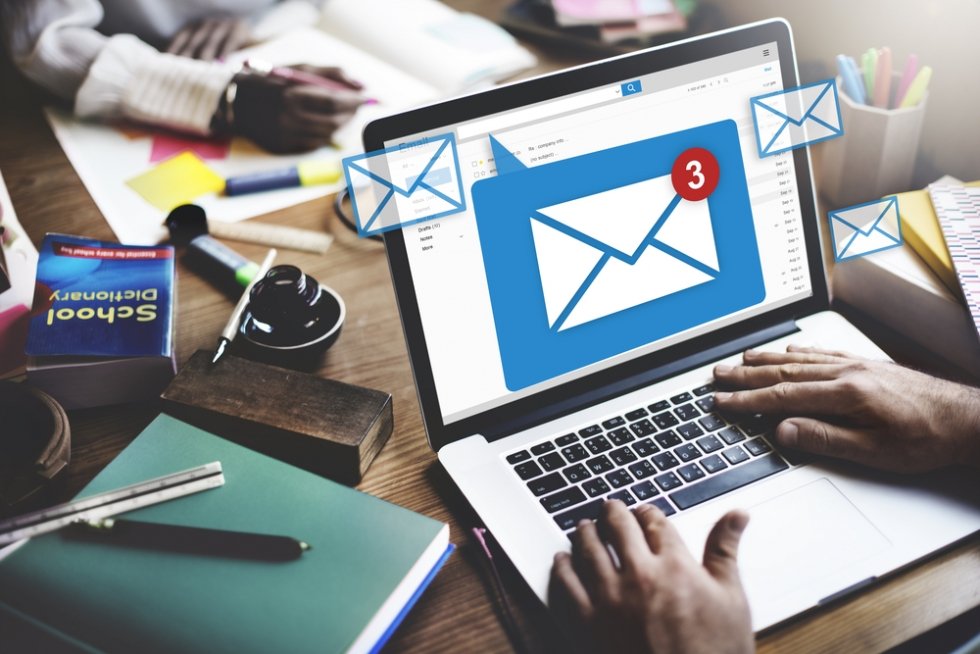In our professional lives, mails are clearly the main mode of communication. The digital bloom has made everything quick and easy. It takes a minute to get your message across and receive instant responses or feedback.
We exchange mails with multiple people in a day, be it for information exchange, conversations, network building, whatever. Work comes to an immediate standstill without it.
Considering the obvious overuse, we tend to make mistakes every now and then. But when quantity really starts trumping quality, it reflects badly on the sender.
Here are a few examples of the things we should always keep in mind before hitting ‘send’. These are the small things that draw the line between careful and careless. Always better to remember the checklist and stick to Netiquette, guys.

Spelling the person’s name wrong
You’d think that people would avoid such a blunder but surprisingly a lot of them slip here. And that leaves you with embarrassment and the receiver slightly offended, if not amused. No one wants to be called by the wrong name. It shows you in poor light for not even ensuring basic etiquette.
Forgetting the attachment
PFA means ‘Please Find Attached’, but even though we jot down the term out of habit at the very beginning, actually attaching the files is often left for the end. Which means there’s a fat chance we’d forget to do so in a rush. That’ll be followed by an apology, revision and unnecessary hassle. Also, god save you if you add a personal document without checking.

Making grammatical mistakes
This should be a hard and fast rule anyway. Nothing is a bigger turnoff than bad, broken language. Avoid using words you’re not too familiar with, don’t overuse or underuse punctuation and make sure everything makes sense. Between “your” and “you’re” lies your reputation.
Dragging it
Stick to the point and make it as brief as possible. No one has the time to read your long, boring explanations. By the time one has scrolled to reach the end, they’re annoyed and you’ve lost half their interest already. Just follow KISS – Keep It Simple Silly.

Getting your facts wrong
Just get the right information and convey it exactly the way you found it! Fact checking is extremely important as giving the wrong data even a few times will lower your credibility. You’ll be one those people who can’t always be trusted for their research. You don’t want that, do you?
Sounding too curt or indifferent
A ‘please’ or ‘thanks’ never hurt anyone. Ideally, there must be a polite tone in everything you send out, with a few exceptions. Pleasantries set the right mood, making the other end warmer and more receptive to you. It’s not just your time and effort, it’s theirs too. Be nice.

Writing long or irrelevant subject lines
A lot depends on that one line. It’s basically the gist of your email before one opens it. Make sure it gets the point across. Don’t make it too long as people might skip it and move on to the next. Let it be easy for the other person. They don’t know what you’re saying yet so make it clear and direct.
Getting into heated exchanges
Even if someone is provoking you, keep cool or you’ll regret that angry email thread. It doesn’t make sense to lash out in written when you know people are marked on it or could be involved if the matter escalates. Why make your issues a public spectacle? Resolve internal matters privately with more integrity.

Sending an email soon accidentally
Make it a practice to enter the recipients’ names once the email is entirely done from your end, complete with finishing touches. Otherwise your boss is receiving content that’s half-written or rough around the edges. No one has time to waste on such childish errors.
Using CC, BCC and ‘reply all’ wrongly
Seriously, just clear out the confusion before you hit the button. You don’t want the email going to the wrong people or missing out the important ones. Also, decide wisely about who needs to be marked at all. Lastly, be careful while replying on the thread. If you have to respond to only one person, make sure it doesn’t go to the whole group, and vice versa.

Remember, remember. Don’t be that email idiot.

















